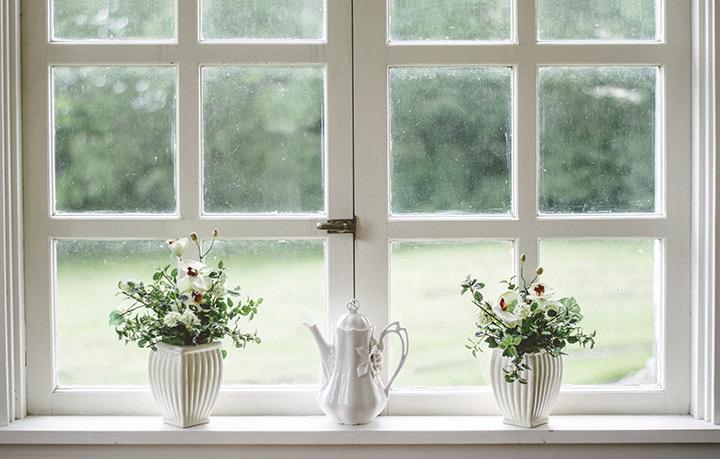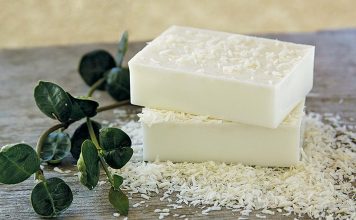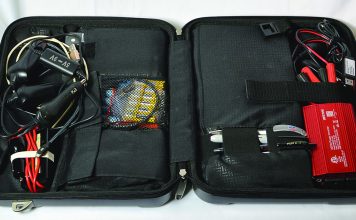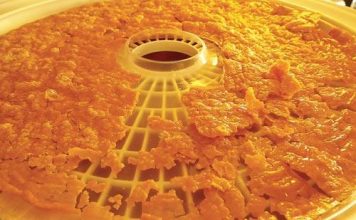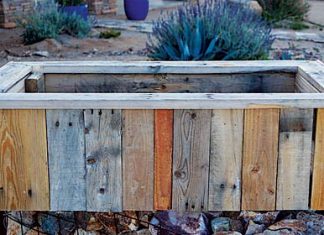By Sandy Lindsey
Issue #43 • January/February, 1997
1 To make windows and mirrors sparkle, dip a clean cloth in a 50/50 mixture of borax and water or denatured alcohol and wipe down. Polish with a lint-free rag or paper towel.
2 To achieve the highest shine and clearest view on windows and other glass surfaces, after washing and drying thoroughly, wipe them down with a clean, dry blackboard eraser.
3 To clean windows that you’ve put off for so long that they’re now absolutely filthy and completely daunting, add three Tablespoons of clear ammonia (not sudsy ammonia, which will leave streaks) or three Tablespoons of vinegar to a small bucket of cool water. (Note: Do not use both ammonia and vinegar, as they will neutralize each other)
4 For particularly hard spots, use full-strength rubbing alcohol or mineral spirits, a clean rag, and some elbow grease.
5 To make cleaning small window panes easier, cut a squeegee to the exact window size. First remove the rubber blade, then use a saw to trim the metal blade holder. A pair of good scissors or garden snips should be all that’s needed to cut the rubber blade to match. For streak-free cleaning, run the squeegee across the top of the window pane, wipe the blade, then run the squeegee in downward strokes starting at the bottom of the horizontal line just squeegeed. Use overlapping strokes to eliminate water lines at the edges.
6 Another way to make window cleaning quicker and easier is to use an old 100% cotton sweatsock on both hands. Wash with one hand, dry with the other.
7 To get accumulated grit out of window edges and corners, use a Q-tip dipped in vinegar. Rinse thoroughly afterwards.
8 To keep frost from accumulating on exterior windows during the winter, add two cups of antifreeze or rubbing alcohol to each gallon of wash water.
9 If your last house painting left tiny paint flakes on your windows, saturate the paint spots with a cloth dipped in vinegar to soften the dried paint. Scrape off with an ice scraper, or if necessary with a razor blade.
10 If hard water leaves a cloudy film on your windows and drinking glasses, rub the glass down with warm vinegar to loosen the film buildup, then wash with bottled or filtered water. This works equally well with windows that have a build-up from dirty rain water.
11 Tape a reflective vinyl coating to the inside of windows to protect interior furnishings and curtains from the harsh effects of the sun. It will also help keep a warm room cooler and more pleasant to use.
12 To cover clear bathroom windows from prying eyes, mix four Tablespoons of Epsom salts in ½ pint of flat beer, and paint on with a brush to create temporarily opaque windows. To remove, wash with borax and water as suggested in #1.
13 Use a vacuum cleaner to periodically clean dirty window screens while they’re still in place to save yourself the trouble of removing and replacing them for washing.
14 To make metal window screens last longer, paint them yearly with a light coating of spar varnish.
15 To keep aluminum window screens clean, remove them every few months and scrub down both sides with a rag dipped in kerosene. Wipe off the excess and allow to dry. The remaining kerosene will act as a rust inhibitor. Warning: Work with kerosene only in a well-ventilated area away from open flame.
16 The quickest way to repair a small hole in a window screen (whether metal or fiberglass) is to push the weave back together and seal with clear nail polish, to keep out small bugs.
17 To repair a larger hole in a fiberglass screen, remove the screen and lay it down flat in a work area. Lay a sheet of aluminum foil beneath the hole in the screen. Place a fiberglass patch over the hole, and lay another piece of aluminum foil over the spot. Run a hot iron around the edges of the patch. The heat will fuse the old fiberglass screen with the new. Remove the foil and reinstall.


